Ecuadorian bananas are still one of the most demanded fruits globally, standing out in markets such as Europe, Asia, the United States, the Southern Cone and the Middle East. The quality, volume and capacity to adapt to different climates and transport conditions have turned this into a key export product for Ecuador.
Dusal, a company with almost 50 years of experience in the production and export of bananas, is currently able to produce between 70 and 80 containers of bananas per week, which represents an annual volume of around 4,160 containers, equivalent to almost 5 million boxes. Business developer Cristian Salmon says that this volume has grown significantly compared to last year, when the production was about half that.
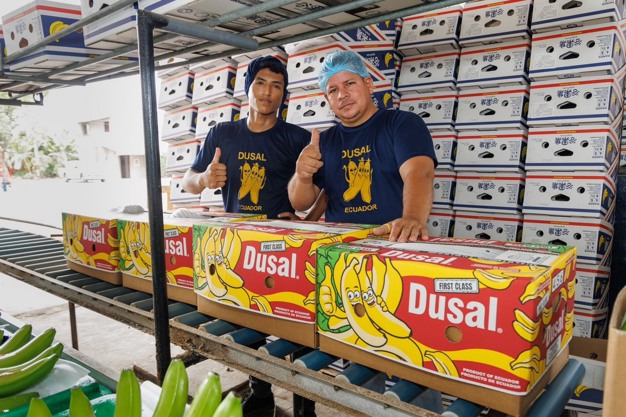
"Our most important market is still the Southern Cone; countries such as Argentina and Chile, but we also have a strong presence in the Middle East, in destinations such as Qatar, Jordan, Saudi Arabia or Kuwait," says Salmon. Despite the logistical and climatic challenges that sometimes affect exports, the Middle East market has shown stability and has been a key region for the company's growth. Dusal also has good relationships with customers in China, Europe and the United States, thus ensuring the global distribution of its products.
One of the biggest challenges in exporting bananas is ensuring that the quality of the fruit is preserved during transport, especially when shipping to distant destinations such as the Middle East and Asia. Dusal has implemented strict packing and transport protocols to ensure that its bananas arrive in optimal condition.
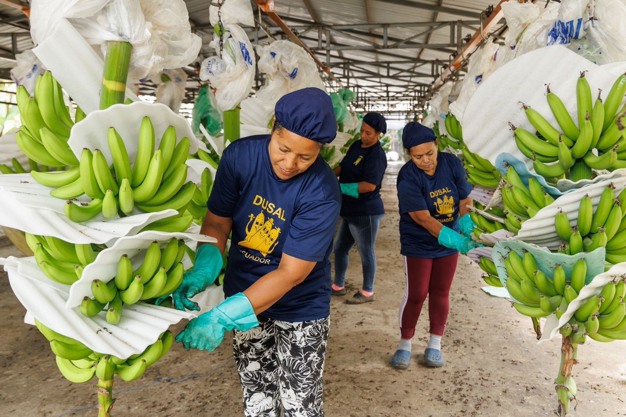
"We use different types of packaging depending on the destination. For shipments taking longer than 40 days, we use controlled atmosphere containers and special sleeves, which are allowing us to keep the fruit green even after 60 days," says Salmon.
In terms of challenges, Salmon mentions logistical problems in some international ports and the impact of the weather conditions in Ecuador. Locally, Dusal has implemented strict measures to protect its plantations from diseases such as moko, a bacterium that can destroy the crops. "We are implementing very strict biosecurity protocols, including the disinfection of vehicles, restrictions to people entering the plantations and the limited use of surface water on the crops to prevent the spread of this disease," he says.
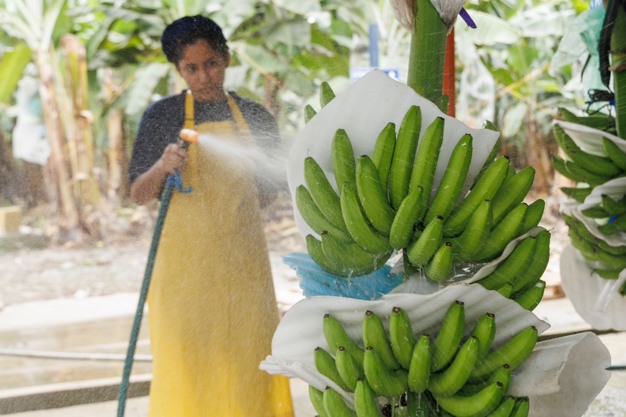
In terms of prices, Ecuadorian bananas have seen significant fluctuations this year. Although the government sets a minimum price of $6.85 per box, prices have gone as high as $13 due to high demand, especially from large buyers such as Chiquita Brand. Producers have considerably benefitted from this.
This year has been notable for the stability of banana prices, which have been remarkably high, compared to previous years. Although there are challenges ahead in 2025 due to contractual decisions from Ecuadorian producers, exporters are expected to continue working closely with them to guarantee the necessary supply. Despite possible fluctuations in the production, the high international demand means there are still great opportunities in the banana market.
Competition in the banana market is fierce, especially with countries in Central America and the Philippines. Salmon says that "Ecuadorian bananas are sweeter and have a softer texture compared to Philippine or Vietnamese bananas, which makes them more attractive in high-demand markets."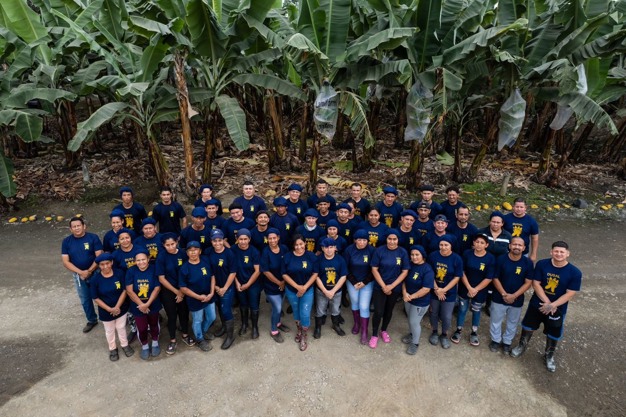
Dusal prioritizes offering quality fruit. "Its quality team carefully monitors the entire production process at the farms, ensuring that best agricultural practices are followed in every step, from fertilization to harvesting. It also maintains solid relationships with its clients, thus strengthening its reputation for consistency and reliability in international markets. The company currently holds certifications such as GlobalG.A.P. and GRASP, and is in the process of obtaining a Rainforest Alliance certification," says Salmon.
Dusal will be present at the Fruit Attraction fair in Madrid. You can find them in Hall 4, stand 4C10.
For more information: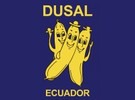
Cristian Salmon
Dusal
Arcos Plaza 2, Oficina 204
Samborondon, Ecuador
Tel: +593 98 038 8252
csalmon@dusal.com.ec
www.dusal.com.ec
